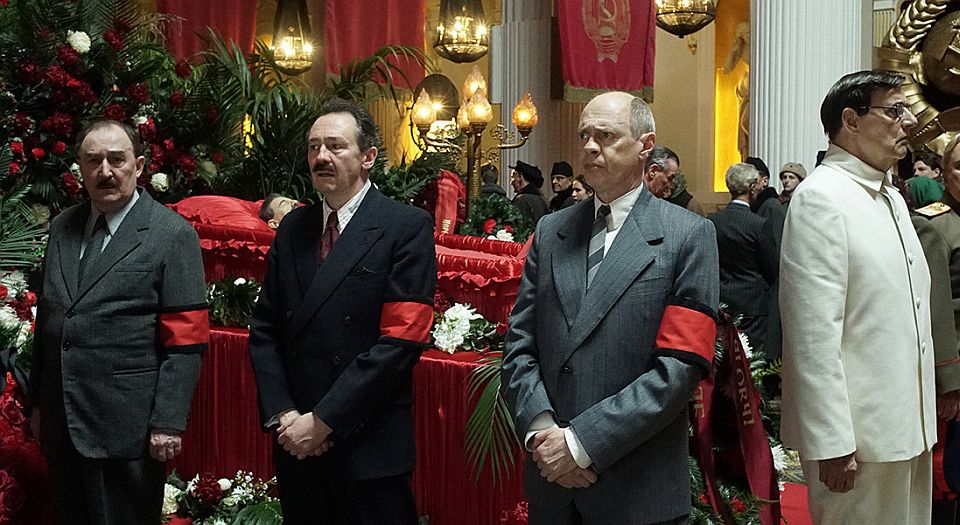The Death of Stalin: the arrival of Iannucci
In his first non-spin-off film, the writer-director hits on something profound.

Having made his name with brilliant TV comedies like The Day Today, I’m Alan Partridge and The Thick of It, Armando Iannucci returns to the cinema with his second feature film as director: The Death of Stalin.
The film recently premiered at the Toronto International Film Festival. While Iannucci is known for contemporary political satire, it’s great to see this great comedy writer tackle historical subject matter without losing any of his bite. The totalitarian setting allows Iannucci to indulge in the darkest comedy of his career. Though inspired by the real events surrounding the aftermath of Stalin’s death, the movie is predominantly adapted from the graphic novel of the same name.
Iannucci’s previous film work has been composed of spin-offs from his TV work. He co-wrote Alpha Papa, the Alan Partridge movie, and his directorial debut was In the Loop: a transatlantic riff on The Thick of It, with the great Malcolm Tucker joined by the same actors who starred in the TV show strangely playing different characters. Like The Thick of It, and its subsequent US adaptation Veep, the movie utilised drably lit, hand-held cinematography to counter the glamorous, flowing look of The West Wing. Iannucci’s deeply pessimistic view of politicians permeates all his work.
The Death of Stalin is a far more cinematic venture, and proceeds with strong visual assurance. The art design has all the period accuracy of the regime, with incredible sets and fabulous costumes. These are contrasted, however, with central performances that make no attempt at authenticity, adding to the film’s inherent absurdity. No one attempts a Russian accent, the American and British actors all speaking in their native inflection. A foulmouthed Stalin even speaks in a raspy, cockney affectation.
The film’s crux is showing these little, pathetic men dwarfed by their huge responsibilities once the Old Man dies, all the time knowing that one mistake could get them killed. The members of the committee, which emerges in the wake of Stalin’s death, are struck by intense paranoia and infighting, while constantly congratulating themselves on reaching their forced, unanimous decisions. The film is absurd both in its Kafkaesque portrayal of totalitarianism and in Iannucci’s fantastic dialogue, with pedantic arguments set against farcical situations.
The cast members are all superb, playing caricatures of actual Soviet politicians. It’s great to see Steve Buscemi doing comedy. He plays Nikita Khrushchev, the character we root for even as his morality gets murkier. Simon Russell Beale is brilliantly devious as Lavrentiy Beria. The glee with which he attends to Stalin’s last list of mass assassinations sets him as the antagonist early on. And Jeffrey Tambor is especially amusing as Georgy Malenkov, the most useless and vain of the group, who of course ends up replacing Stalin as leader.
While a mistake made by one of the characters of The Thick of It might have ended in embarrassment, here it can mean torture and death. The film doesn’t flinch from the horrors of Stalinism, but is still able to ridicule the mixture of self-interest and incompetence that drove some of its internal workings. Its bravura balance of horror and farce puts one in mind of Dr Strangelove. This profound comedy shows Iannucci may have a great career in cinema ahead of him.
Christian Butler is a spiked columnist. Follow him on Twitter: @CPAButler
Watch the trailer for The Death of Stalin:
To enquire about republishing spiked’s content, a right to reply or to request a correction, please contact the managing editor, Viv Regan.








Comments
Want to join the conversation?
Only spiked supporters and patrons, who donate regularly to us, can comment on our articles.